Louis Vérin-Kieffer (H.16) : mapping infrastructures in Africa
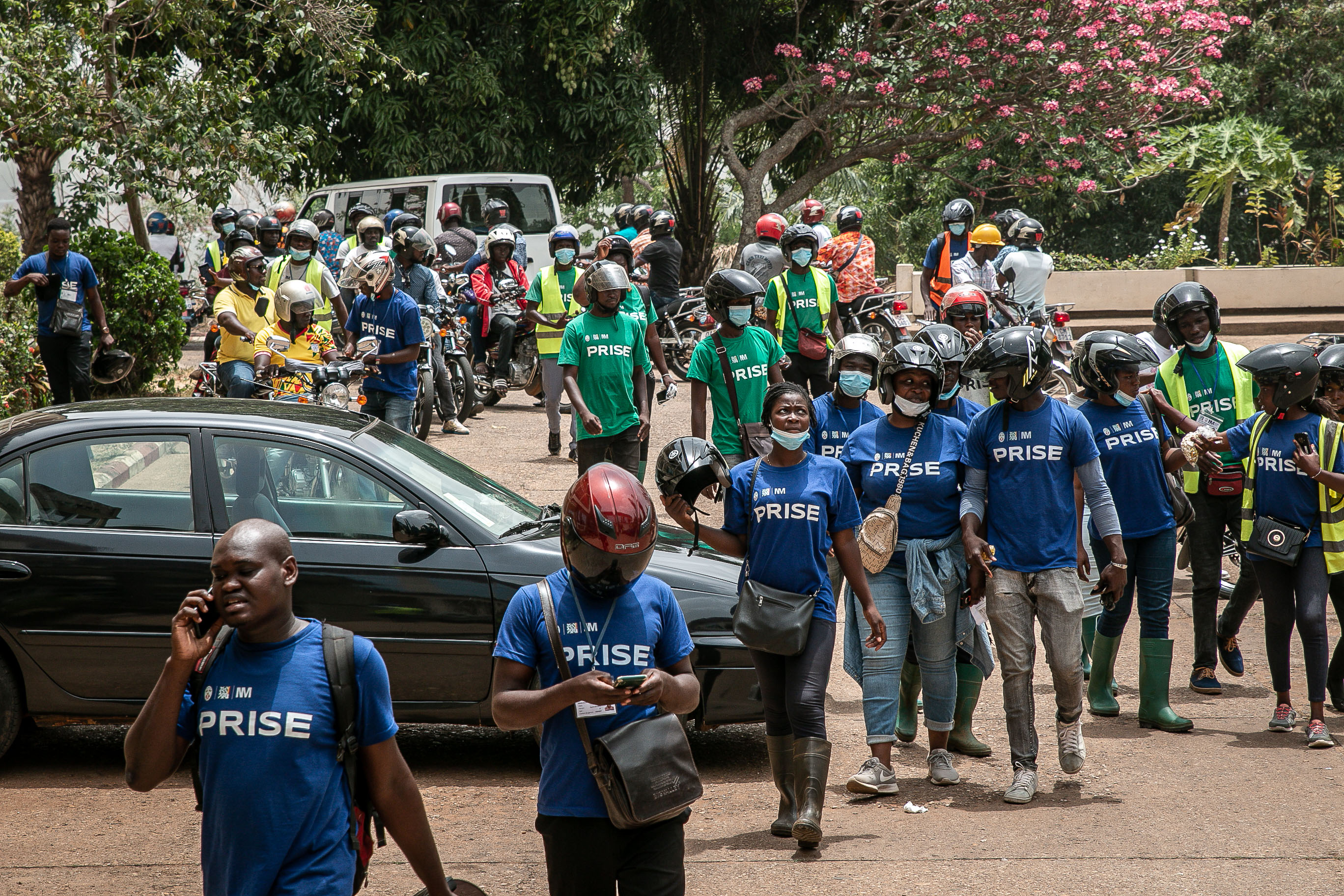
With his start-up Mitsio Motu, Louis Vérin-Kieffer (H.16) and his team geolocate African infrastructures to assist public and corporate decision-makers in providing access to basic services, putting data at the service of populations.
His ancestors passed down to him a passion for roaming the land. Louis Vérin-Kieffer grew up in a family of archaeologists specializing in the Indian Ocean, and this Parisian by birth spent his childhood shuttling between continents. It was in Africa that he chose to settle once he had his degrees.
After preparatory classes at Saint-Jean-de-Douai, he entered HEC “knowing nothing the world of business schools or finance.” It was ultimately during a master’s program in Sustainable Development and Social Alternative (now renamed master in Sustainability and Social Innovation) that he found inspiration. During an internship in 2015, he participated in electrifying villages for a Senegalese company in the Tambacounda and Kedougou region, in the eastern part of the country. The lack of topographical, demographic, and other indications hindered his work. “We didn’t know where to deploy the power lines or solar kits.”
Settling in Nigeria after graduation, Louis started collecting data to “address the challenges of access to basic services” and advise both public and private entities. “We wanted to help countries better define their policies and programs for the most vulnerable populations,” explains Louis. In 2018, he founded Mitsio Motu, a company registered in France with a subsidiary in Lagos. A small team formed with the arrival of his associate Guillaume Haegel and later Ghislain Desfossés (H.16), a prep school friend and fellow student at HEC.
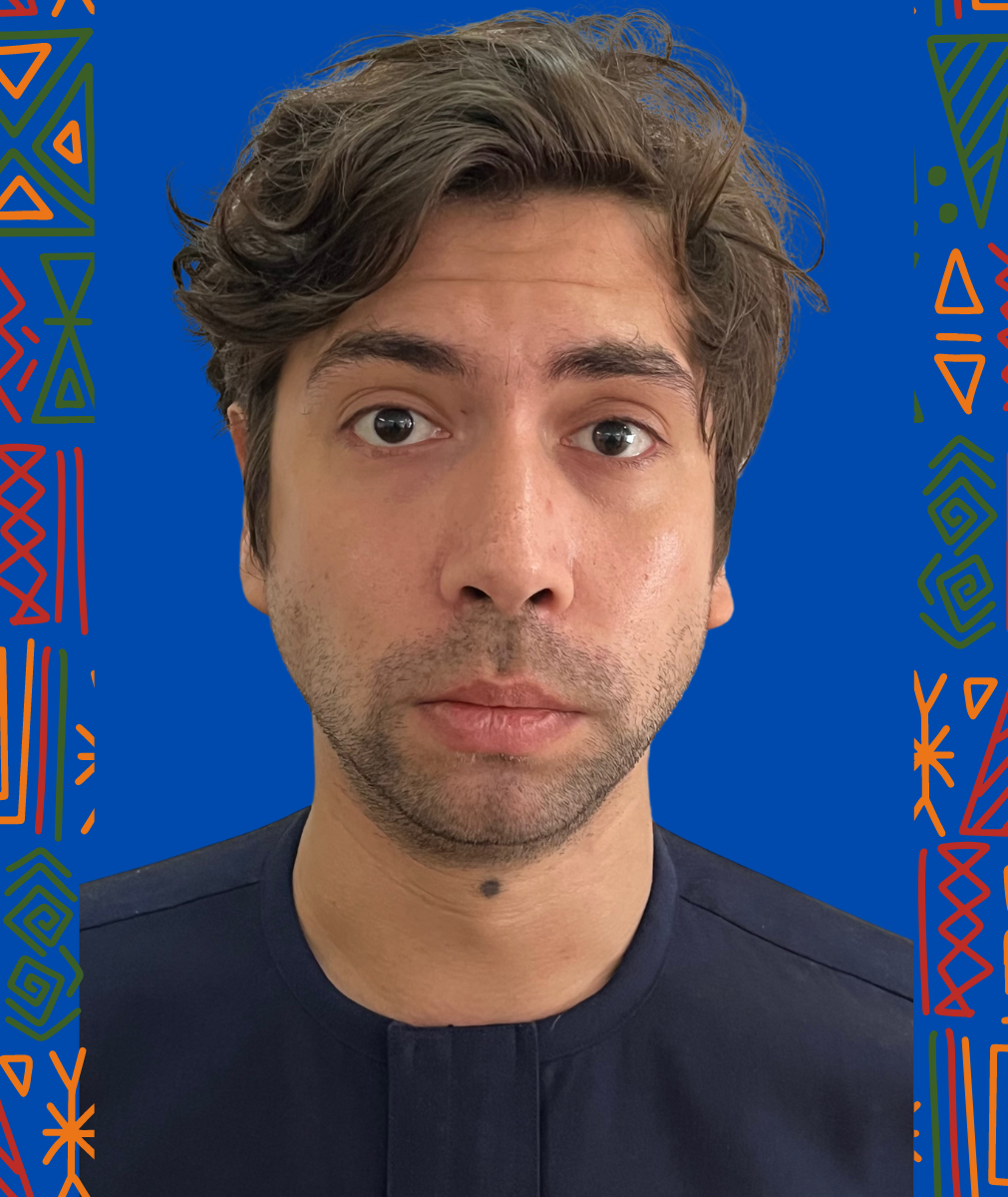
Field Data Collection At a Scale
Energy, water, education… The team travelled the country by motorcycle, sometimes crossing sensitive areas like the Borno region to record GPS coordinates of schools or electrical installations. “We were daredevils in northern Nigeria. We liked pushing our limits. Now we are more attentive to security and work around specific schedules. After all, it’s always very pleasant to wake up in the morning, take a motorcycle, and see the sunrise in the bush,” he confides.
During the COVID period, Mitsio Motu expanded its activities in urban areas. Louis noticed that the population of Lagos, plagued by hunger, was constrained to loot supermarkets due to a lack of supplies. “There was nothing left to eat. So, we mapped out the food distribution networks to help deploy small supply stands in the right places.”
There is a difference between reading a report and seeing the reality of inequalities in your country by zooming in or out on a map.
Thanks to a reputation gained through word of mouth, the small company was contacted in 2021 by the Togolese government. The three partners then embarked on a major project to inventory the social and economic infrastructures of Togo. A large-scale data collection project for which a team of over 700 people was recruited. “We worked about six days out of seven, at a fast pace,” Louis recalls. Every morning, the operational team managed by Guillaume set out on motorcycles with smartphones and forms to cover the territory.”
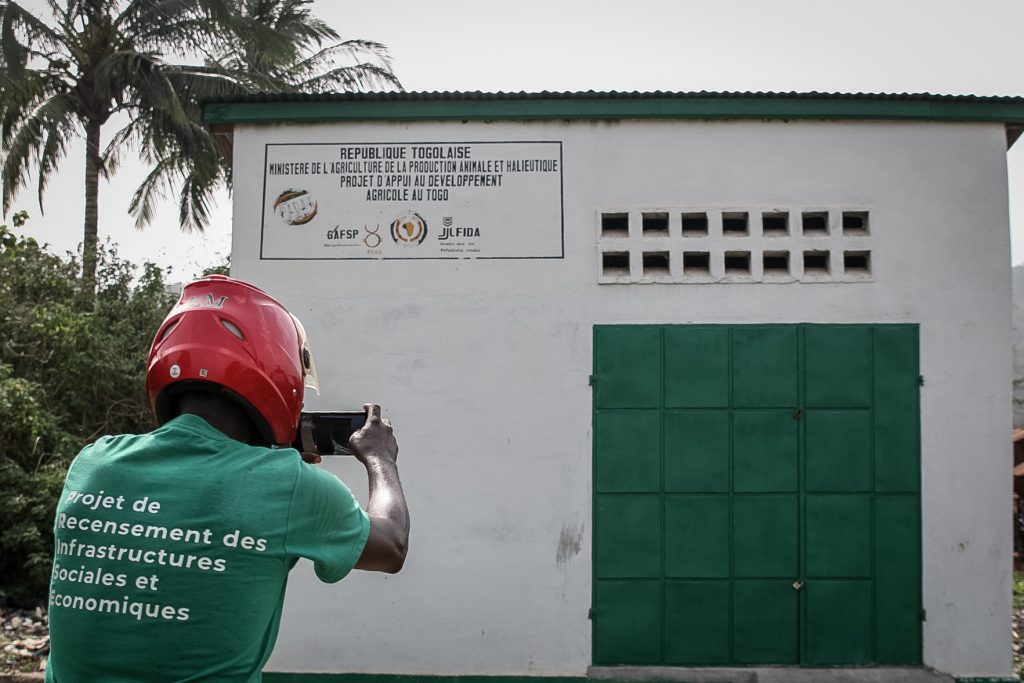
Teacher-student ratios in schools, hospitals, road conditions… In all regions of Togo, 150 types of infrastructures were cataloged and documented, down to the smallest detail. “It ranges from the school’s roof material to the number of students per class,” explains Ghislain Desfossés (H.16), CTO at Mitsio Motu. He integrates this data into interactive maps accessible via the Internet. “One of our challenges is to clean and sort this data. These online portals geolocate all the country’s infrastructure networks, highlighti territorial disparities,” he explains. Solar panels, access to water, sanitation in schools, healthcare centers within 20 km… It’s about addressing these basic needs.
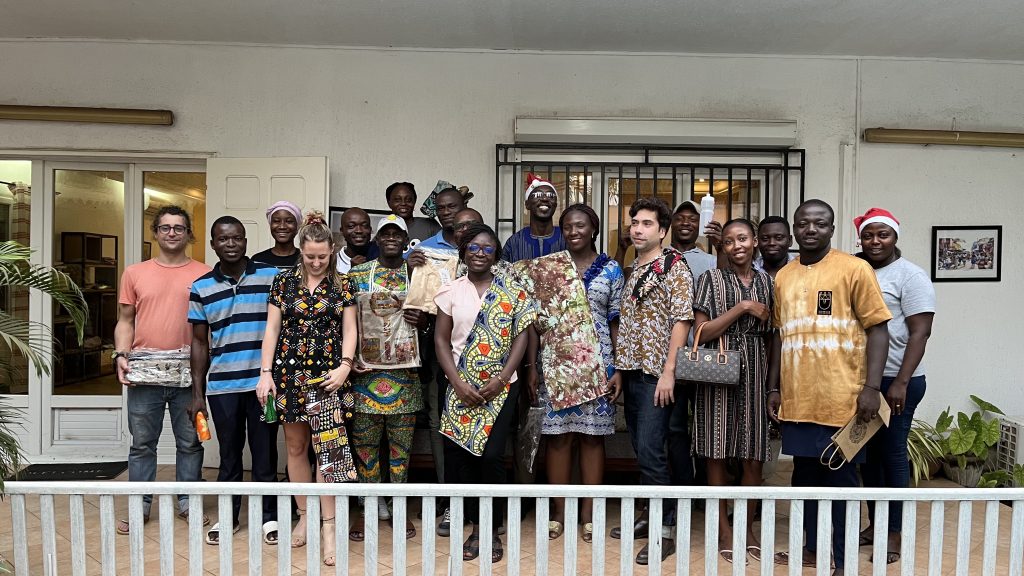
Mapping Culture
Mitsio Motu provides its services in sixteen countries, from Tanzania to the Democratic Republic of the Congo. The startup has maintained strong ties with French companies and working for instance with the Bordeaux-based company Sunna Design for the installation of 50,000 solar streetlights in rural areas.
Today, Louis resides in Lomé, Togo, where Mitsio Motu has developed. “It’s our main base. It’s calmer than Nigeria. Compared to it, Lagos is a bustling mega-city. Here, it’s a different mindset: you can focus and think long term more easily.” His company also has a branch in Guinea.
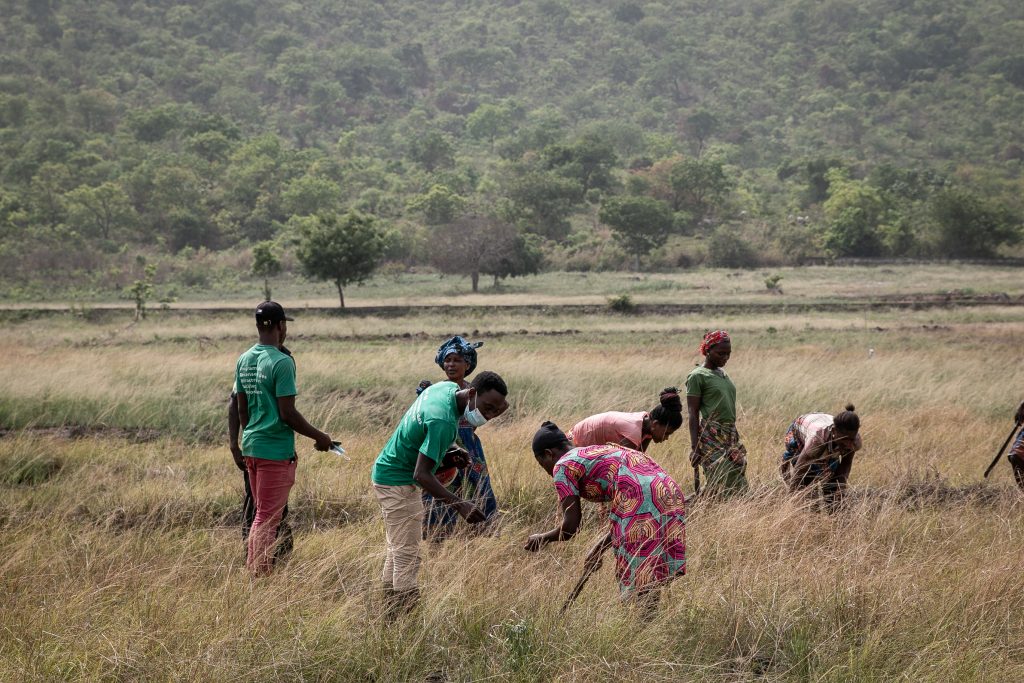
Mitsio Motu also plans to play a role in new sectors, particularly in the cultural emulation that animates African capitals. “There’s a real buzz, from Lagos to Abidjan. You hear Nigerian music, like Davido, for example, in all Parisian taxis,” explains Louis. “We’re trying to push new solutions that make artists’ residences, galleries, cultural networks visible and connect them.”
In the future, the team would like to contribute to knowledge and skills transmission to African youth so they can access new opportunities, a “huge challenge” at the continent’s scale. The startup is also looking to assist in establishing new relations between the African continent and Europe.
Published by Estel Plagué

